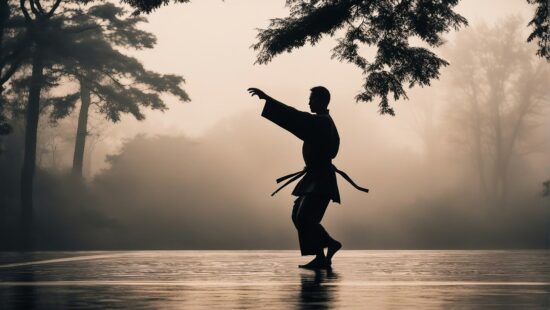In an increasingly fast-paced and technology-driven world, finding balance and inner peace has become a priority for many. Brent Suen emphasizes that the ancient disciplines of martial arts offer more than just self-defense skills; they provide a path to mindfulness, self-awareness, and inner tranquility. Combining physical movement with mental discipline, martial arts serve as a powerful tool for cultivating mindfulness and fostering a harmonious connection between mind and body.
The Philosophy Behind Martial Arts
At the core of martial arts lies a deep philosophy of self-improvement and respect for oneself and others. Rooted in ancient traditions, martial arts such as Karate, Taekwondo, Judo, Kung Fu, and Aikido emphasize balance, focus, and discipline. These practices are not just about combat; they are about mastering one’s mind and emotions while cultivating inner strength.
The principles of martial arts align closely with the tenets of mindfulness: being present, accepting the moment as it is, and maintaining a nonjudgmental awareness of thoughts and emotions. Martial arts encourage practitioners to focus on their breathing, movements, and surroundings, creating a meditative state that fosters mindfulness.
The Connection Between Movement and Mindfulness
Mindfulness is the practice of being fully present in the moment, and martial arts naturally incorporate this through movement. When engaging in martial arts, practitioners must concentrate on precise movements, techniques, and the flow of their bodies. This focus helps quiet the mind and keeps it from wandering to worries about the past or future.
For example, during a sparring session or while practicing a kata (a choreographed sequence of movements), the martial artist must remain fully engaged in the task at hand. This immersion in movement mirrors the meditative practices found in yoga or seated meditation, allowing the mind to enter a state of flow.
Breath Control and Meditation in Martial Arts
Breath control is a fundamental aspect of both martial arts and mindfulness. In disciplines like Tai Chi and Qigong, breathing techniques are central to the practice, helping practitioners center themselves and control their energy (often referred to as “qi” or “chi”). The focus on slow, deliberate breaths calms the nervous system, reduces stress, and promotes a sense of inner peace.
Even in more physically demanding martial arts like Muay Thai or Brazilian Jiu-Jitsu, breath control plays a critical role. Proper breathing techniques not only enhance performance but also keep the practitioner grounded, especially in high-pressure situations. This deliberate focus on breath bridges the gap between the physical and mental aspects of martial arts, creating a meditative experience.
Stress Reduction and Emotional Balance
Martial arts provide a structured outlet for releasing stress and negative emotions. The physical exertion involved in martial arts helps release endorphins, the body’s natural “feel-good” chemicals, promoting a sense of well-being. Furthermore, the discipline and focus required in training teach practitioners to manage their emotions effectively.
Many martial artists report feeling a heightened sense of emotional balance and resilience. The practice encourages individuals to face challenges with a calm and focused mindset, whether in the dojo or in everyday life. This emotional regulation is a cornerstone of mindfulness, empowering individuals to respond to situations thoughtfully rather than react impulsively.
Building Confidence and Self-Awareness
Mindfulness through martial arts extends beyond the training mat, influencing how individuals perceive themselves and interact with the world. By mastering techniques and overcoming challenges in training, practitioners build confidence and self-awareness. This heightened sense of self translates to other areas of life, helping individuals approach personal and professional challenges with poise and assurance.
Martial arts also encourage practitioners to embrace humility and self-reflection. Progressing through the ranks requires continuous learning, patience, and a willingness to confront one’s weaknesses. This process fosters a deep understanding of oneself, which is a critical component of mindfulness.
Community and Connection
Another aspect of martial arts that enhances mindfulness is the sense of community it fosters. Training alongside others creates a supportive environment where individuals can share experiences, learn from one another, and grow together. The camaraderie and mutual respect developed within a martial arts community reinforce the principles of mindfulness, such as empathy, compassion, and interconnectedness.
Practical Tips for Incorporating Martial Arts and Mindfulness
If you’re interested in exploring martial arts as a pathway to mindfulness, here are some practical tips to get started:
- Choose the Right Discipline: Research different martial arts styles to find one that aligns with your interests and goals. For a more meditative approach, consider Tai Chi or Aikido. If you’re looking for a physically intense practice, explore Muay Thai or Brazilian Jiu-Jitsu.
- Focus on the Present: During training, concentrate fully on your movements, breathing, and surroundings. Let go of distractions and immerse yourself in the moment.
- Practice Regularly: Consistency is key to reaping the benefits of martial arts. Regular practice enhances both physical and mental discipline over time.
- Combine Martial Arts with Meditation: Set aside time for seated or walking meditation to complement your martial arts practice. This can deepen your mindfulness and reinforce the mental clarity gained through training.
- Find a Supportive Community: Joining a dojo or martial arts school with a welcoming atmosphere can enhance your experience. Training with others creates a sense of accountability and mutual growth.
Martial arts and mindfulness form a powerful combination that promotes inner peace, resilience, and self-awareness. By integrating movement, breath control, and focused attention, martial arts offer a holistic approach to physical and mental well-being. Whether you’re seeking stress relief, improved focus, or a deeper connection with yourself, martial arts provide a pathway to achieving these goals. Embrace the journey, and discover how the art of mindful movement can transform your life.
